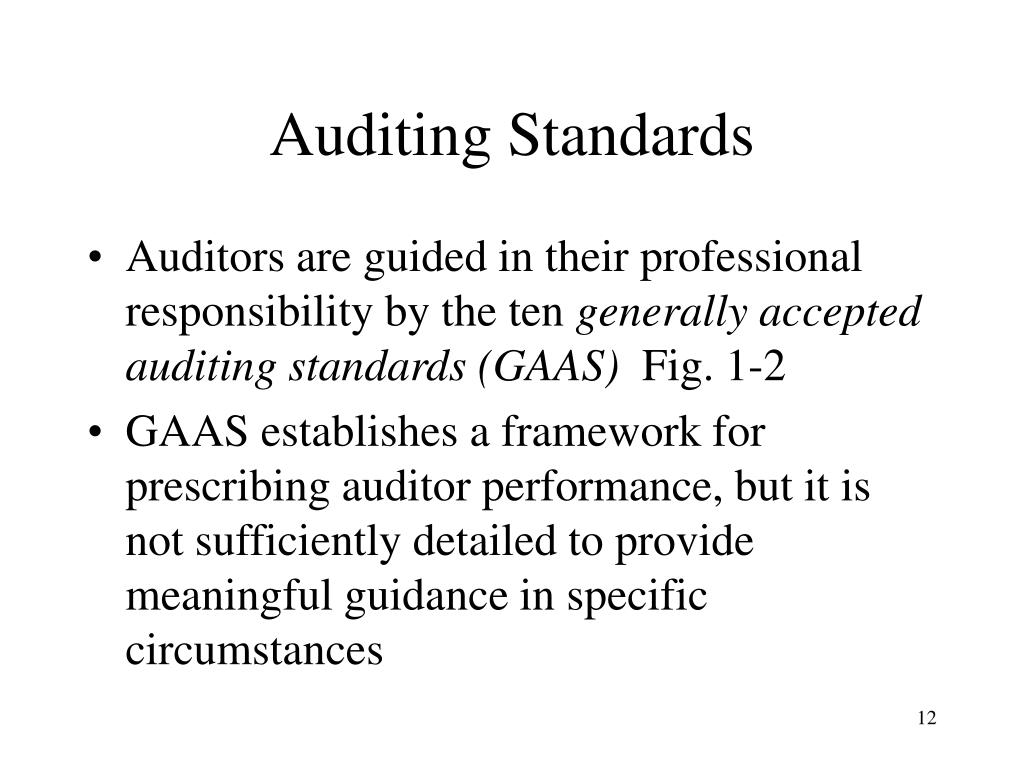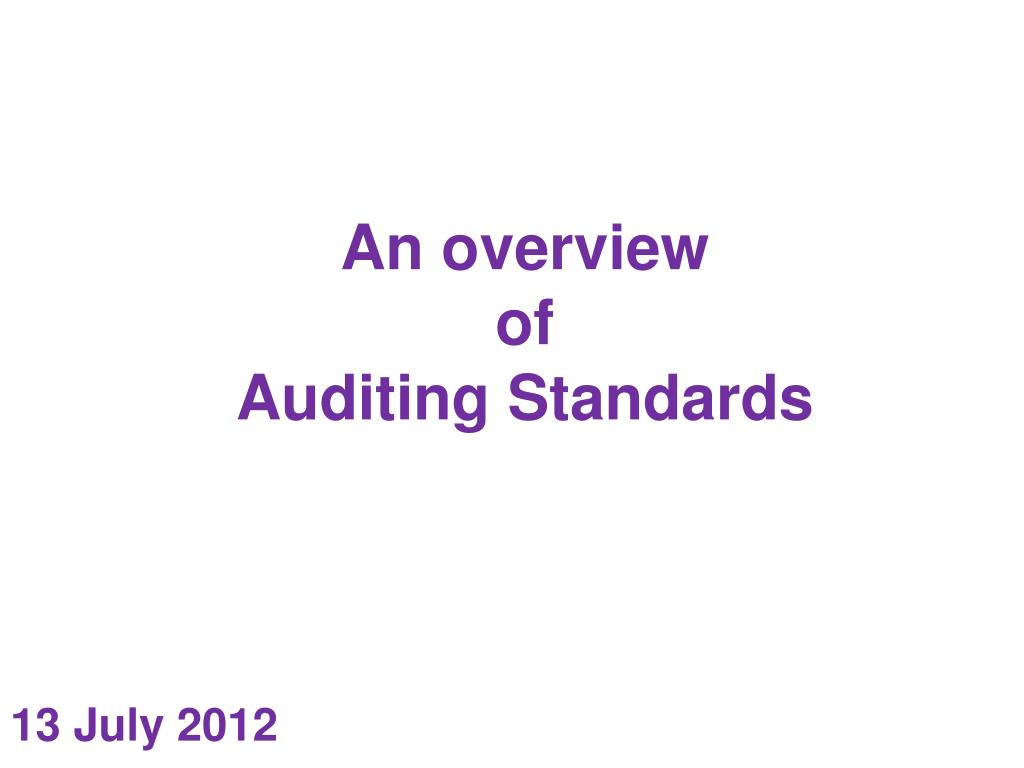

1. generally accepted auditing standards new principles professional#
Under the revised IB, an accountant or firm is not disqualified from accepting a new audit engagement merely because of holding publicly traded securities of a plan sponsor during the period covered by the financial statements as long as the accountant, accounting firm, partners, shareholder employees, and professional employees of the accountant's accounting firm, and their immediate family, have disposed of any holdings of such publicly traded securities prior to the period of professional engagement. The 1975 IB set out the DOL's view that an accountant cannot conduct the ERISA-required audit of a plan's financial statements if the accountant, the accountant's firm or a member of the firm has a "direct financial interest or material indirect financial interest" in the plan or plan sponsor "during the period covered by the financial statements" or "uring the period of professional engagement." Time period during which accountants are prohibited from holding financial interests in the plan or plan sponsor. They added that the DOL reports that auditors who perform more ERISA audits tend to make fewer errors.Īmong the areas revised by IB 2022-01 are the following: The accountant also must render an opinion as to whether the financial statements are presented fairly in conformity with generally accepted accounting principles and whether the schedules required to be included in the plan's annual report fairly present the information in the financial statements taken as a whole.Īccording to an analysis of IB 2022-01 by attorneys at Groom Law Group in Washington, D.C., the new guidance " should reduce the number of auditors that are inadvertently disqualified from initial engagements, thereby allowing plan sponsors more latitude in their auditor selection process." In addition, "plan sponsors may be able to choose from a wider pool of accountants due to the relaxed independence standards."Īnother result of IB 2022-01 may be a greater concentration of plan audits being performed by a smaller number of auditors, the attorneys noted. Under ERISA, plan administrators-subject to certain exceptions-are required to retain an "independent qualified public accountant" to conduct an annual examination of the plan's financial statements in accordance with generally accepted auditing standards.

IB 2022-01 revises and restates the earlier guidance to remove certain outdated and unnecessarily restrictive provisions and to reorganize other provisions for clarity, the DOL said.Īli Khawar, acting assistant secretary of labor for employee benefits security, said the DOL wanted to ensure that its guidance on benefits plan audits "continues to foster proper auditor independence while also removing outdated and unnecessary barriers to plans accessing highly qualified auditors and audit firms." The DOL had issued an IB in 1975 that set forth guidelines for determining when a qualified public accountant is independent for purposes of auditing and rendering an opinion on the financial statements required in a benefits plan's Form 5500 annual filing. IB 2022-01 took effect immediately on its publication in the 6, updating its guidance on the independence requirement for accountants who audit employee benefits plans under the Employee Retirement Income Security Act (ERISA). Interpretive Bulletin (IB) 2022-01 on Sept.

Department of Labor's (DOL's) Employee Benefits Security Administration issued


 0 kommentar(er)
0 kommentar(er)
